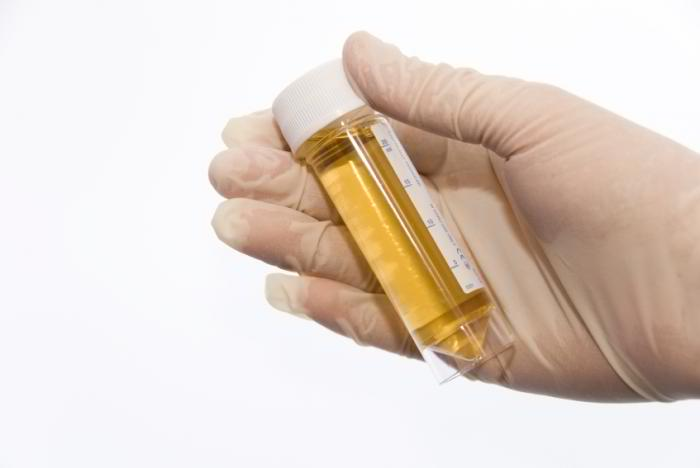Nobody wants to see blood clots in urine. Generally speaking, seeing blood in the urine is alarming, no matter the fact that in some cases, the cause is harmless. Blood in urine, or medically called hematuria, can often indicate a serious disorder.
There are two types of blood in urine. Gross hematuria is blood seen with your eyes. Microscopic hematuria is blood that is visible only under a microscope. In both cases, it is important to determine the causes, understand the symptoms, and see define the treatment for blood clots in urine.
Blood in your urine can take different colors, and appear pink, brown, or red. That depends on the amount of the blood, the length the blood has been in the urine, acidity of your urine, and more factors. Treatment will vary depending on the cause.
Understanding the symptoms
People that have blood clots in urine often notice other symptoms like pain in the side or back, lower abdominal pain, difficulty urinating, an urge to urinate, and many more. Understanding the symptoms is extremely important, as it will help you calm yourself. Yes, blood in the urine can be alarming, and in most cases panic is justified. But you need to calm yourself, so that you can drive to the physician and be calm and focused during the exam.
When you have blood in your urine, followed by pain in the abdominal region, in most cases, the cause is kidney or ureteral stones. This type of pain is usually localized in the back, side, groin, penis in men, and labia in women.
When the clots take different shape that means you are bleeding from the urethra or prostate (for male patients). Blood clots can be wormlike.
Foods and medication can also affect and alter the color of your urine. But if you notice changes in color, it is advisable that you consult your doctor.
When the blood happens at the beginning of urination, the cause is most likely the urethra, or the tube from the bladder to the outside.
Causes of blood clots in urine
Your kidneys are the primary cause for blood clots in urine. The kidneys, or other parts of your urinary tract allow blood cells to leak into urine. There are many problems that can cause the leakage, and here are some of them.
Urinary tract infection
UTIs happen when bacteria enter your body through the urethra. Bacteria then multiples in the bladder, and harms the balance of bacteria. Symptoms of urinary tract infection include pain and burning sensation while urinating, strong-smelling urine, and persistent urge to urinate.
The problem with UTIs is that blood is not visible to the naked eye. For older adults, only a microscopic test might show blood in the urine.
Bladder and kidney stones
Kidney and bladder stones are one of the most common causes of blood clots in urine. The stones are mostly painless, meaning you won’t know until they grow bigger and cause blockage or are being passed in your urinary system. Minerals in concentrated urine form crystals on the walls of your kidneys or bladder. In time, these deposits made of minerals and salt turn into stones. They can affect any part of the urinary tract, from kidneys to bladder. The stones occur mostly when the urine is concentrated.
The good news is that there is no way to mistake the symptoms. Kidney stones cause excruciating pain, one that is hard to stomach and bear. Bladder and kidney stones can cause both gross and microscopic bleeding.
Kidney infections
As with urinary tract infections, kidney infection occur when bacteria enter your kidneys. Bacteria can enter from the bloodstream and move from the ureters to the kidneys. Symptoms of kidney infection are similar to bladder infection. The difference is infection to your kidneys may also result in fever and flank pain.
Kidney disease
As we’ve mentioned previously, in most cases, blood clots in urine are linked with the kidneys. One of the common kidney diseases is glomerulonephritis, or inflammation of the filtering system of the kidneys. It can be part of a systemic disease like diabetes, or it can occur on its own.
Other diseases that affect the kidneys and result in blood clots in urine include viral or strep infections, immune problems like IgA nephropathy, and blood vessel diseases like vasculitis.
Enlarged prostate
The prostate gland is located below the bladder and surrounds the top part of the urethra. The prostate gland can enlarge as men are approaching their middle age. As a result of the enlargement, the prostate compresses the urethra and blocks urine flow.
Difficulty urinating, urgent and persistent need to urinate, visible blood in the urine, and microscopic blood in urine are signs and symptoms of enlarged prostate. The prostate grows larger due to an increase in the number of cells, and the precise reason for the increase is still unknown. Factors like androgens, estrogens, and growth factors may be involved.
Infection of the prostate can also cause blood clots in urine and other enlarged prostate signs and symptoms.
Cancer
Urinary bleeding is often a sign and symptom of advanced cancer to the kidneys, prostate, or bladder. The problem is symptoms like bleeding are not present in the early stage. Prostate, kidney, and bladder cancer are treatable only in the early stage, but not in the later stage and advancement of the cancer.
Kidney injury
Even a small and on first glance painless injury to the kidneys might harm your urine production and secretion. A blow or injury occurring due to accident or contact sports might cause blood in the urine.
Strenuous exercise
Exercise that requires use of great effort or exertion can also cause blood in the urine. It is rare for strenuous exercise to lead to gross hematuria, but it happens. The cause is unknown. Most medical professionals find the link in the trauma to the bladder, dehydration, or breakdown of red blood cells.
Runners are usually affected, as they follow a continuous aerobic exercise. But anyone can develop visible urinary bleeding after an intense and vigorous workout. Just don’t assume the blood is from exercise. Always be careful and talk to your physician if you notice blood clots in urine.
Inherited disorders
Anemia, a hereditary defect of hemoglobin in red blood cells is an inherited disorder that can cause blood in urine. The blood is both visible and microscopic. Other inherited disorders that can cause blood include Alport syndrome, a syndrome that affects the filtering membranes of the kidneys.
Medications
Anti-cancer drugs and anticoagulants can cause blood in the urine. It might sound trivial, but even common anticoagulants like aspirin might cause blood in the urine. That is because anticoagulants cause the blood to thin.
When to see a doctor?
If you notice blood in your urine you should check with your physician within a day or two. If you are unable to urinate, or pass a large amount of blood, you should visit a doctor immediately. That applies if you are feeling severe pain while urination.
The physician will ask you questions about the symptoms and medical history, but also do a full physical evaluation including an X-ray of the kidneys, bladder, and cystoscopy if needed.
You can help the physician to determine the condition by answering the following questions:
- Did you see blood clots?
- What was the shape of the blood clots?
- Was the blood associated with pain?
- What was the color of the blood? Was it brown, bright red, orange, pink, or cherry?
- At which point during urination you notice the blood? At the beginning or end of stream, or during the entire stream?
The doctor will also ask you about fever, weight loss, and symptoms of urinary blockage. In male patients, mild to moderate pain in the lower back or pelvis is often a symptom of a prostate infection.
Pelvic examination is necessary in women in most cases. In some cases, physicians might need to insert a catheter in the bladder to see the source of blood, whether it is the bladder or the vagina. In men, physicians perform a digital rectal examination to check the prostate.






